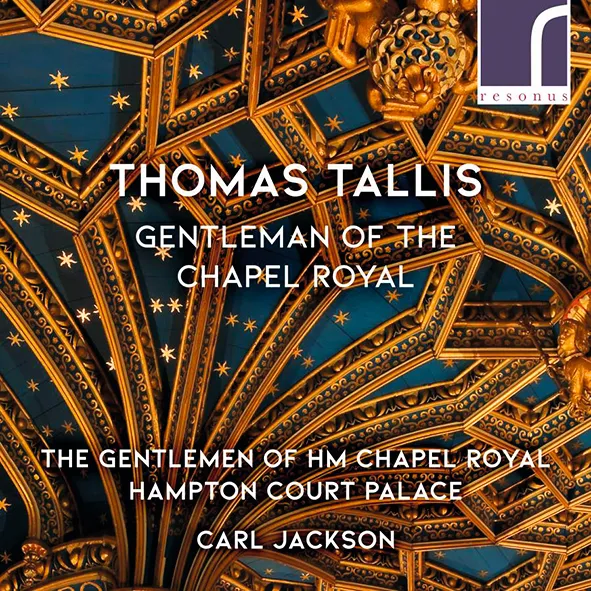
Tallis Suscipe quaeso Domine, Si enim iniquitates; Missa Puer naturs est nobis; In pace in idipsum; Miserere nostri Domine; Mass for Four Voices; Loquebantur variis linguis The Gentlemen of HM Chapel Royal, Hampton Court Palace/Carl Jackson Resonus RES10229 68:22 mins
Tallis himself was a singer, organist and composer in the itinerant Chapel Royal from the 1540s, (when Henry VIII was monarch) until his death in 1585, by which time Elizabeth I was Queen. These turbulent years saw the liturgy of the English Church sway from Protestant to Catholic and back, and Tallis’s music responds to the religious vicissitudes. This programme weighs the two faces of his style: the Mass for Four Voices reflects the whitewashed Anglican churches in its spare, immediate, lucid idiom, while the motets that frame the programme and the Christmas Mass Puer natus est nobis – probably written for the Catholic Queen Mary Tudor – are florid, expansive and richly embroidered.
Today, the Chapel Royal of Hampton Court Palace continues the choral and spiritual tradition of the 16th century – its non-commercial ethos suggested in the fact that this is the ensemble’s first recording in two decades. The 14-strong, all-male ensemble gives fervent and full-blooded performances, its ripe, plangent timbre coloured by the occasional use of vibrato – most noticeably in the plainchant intonations. The results are a far cry from the suave, seraphic sound of groups like The Tallis Scholars, The Sixteen and The Cardinall’s Musick, with their high-soaring sopranos. Particularly effective here are the lush seven-part motets: Suscipe quaeso Domine – beautifully shaped by director Carl Jackson; Loquebantur variis linguis, the singers relishing its scrumptious dissonances, and the haunting Miserere which inspires an otherwordly vocal sound. The recording, in the palace’s resonant chapel, is sumptuous and detailed.
Kate Bolton-Porciatti